As an avid player of slow and cozy games, I was thrilled to play A Short Hike this week, as I was excited to be able to enter into a world full of opportunity for exploration as well as for interacting with unique characters. Without prior knowledge of the structure of the game, I found myself tasked with reaching the top of Hawk Peak, so that instantly became my primary objective. Upon reaching the mountain, however, it became clear that A Short Hike never intended for my hike to be so “short” after all. In order to progress, the player must go off the beaten trail and meet characters and perform side tasks, all of which can lead to the accession of Golden Feathers that aid you on your hike. It was during these character interactions however, that I found A Short Hike to deviate from my previous experiences of cozy games; the sharp-witted humor and backhanded comments exchanged between characters reveal a distinct awareness of the gamification and transactional nature of socialization within video games.
Socialization with in-game characters is a mechanic that is prevalent in many video games, as dialogue can help reveal the overarching plot of the storyline or explain new mechanics to the player. Oftentimes, character interactions can lead to trades or relationship-building, both of which can be linked to in game rewards. For example, in Animal Crossing: New Horizons, achievements and rewards are provided to the player if they engage in daily interactions with the island villagers. Additionally, if the player interacts with a certain character enough, they achieve a “best friend” status, receiving a commemorative photo of that specific villager. While not every dialogue interaction results in a reward, there is a distinct correlation, (even if unrecognized by the player) between player-character “friendships” and the progression toward achievements.
A Short Hike similarly presents players with options for reward-based interactions with characters, as interactions will provide players with potential side quests that they might be rewarded for. Returning a lost headband, playing volleyball, and running a race will all provide the player with Golden Feathers as a reward which are vital to the ultimate hike to the top of the mountain. However, the dialogue between characters in A Short Hike pokes fun at the player’s tendencies to see friendship as transactional, while still engaging in that same form. Specifically, when the player collects 15 shells for Jen and gives them to her, Claire (the player’s character) asks, “Do I get anything?” to which Jen responds, “No…I never promised you anything.” The blatant reference in this dialogue to exchange-based character interactions highlights the self-awareness of A Short Hike’s gameplay, as this moment toys with player’s expectations.
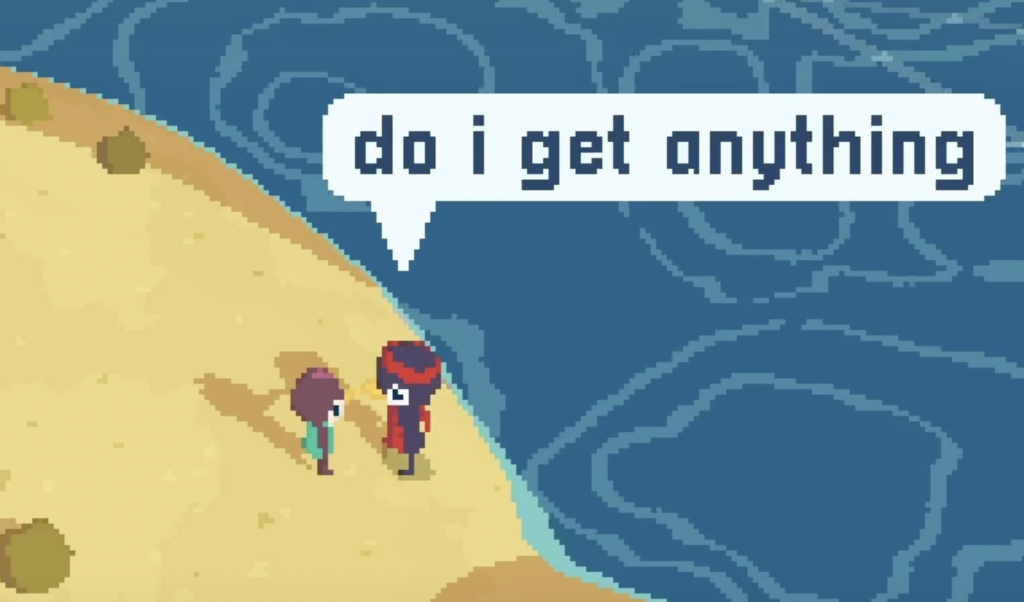
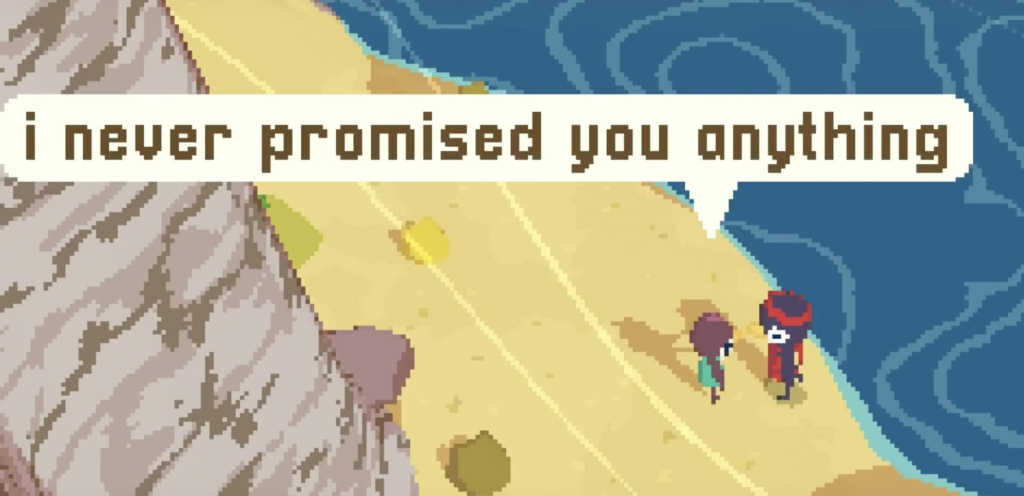
The humor of this scenario continues, as the player is given another job, to give a shell necklace to Ranger May, and after the completion of this task, May gives the player a Golden Feather — although she insists it is not a reward, just merely a coincidence. These moments of humor spring from the player’s previous experience with being rewarded for socializing in games. In this manner, the dialogue in A Short Hike emphasizes the fact that players have been subconsciously trained that friendship in games is correlated with achievements or rewards, feeding into the desire for progress and productivity even within slow games.
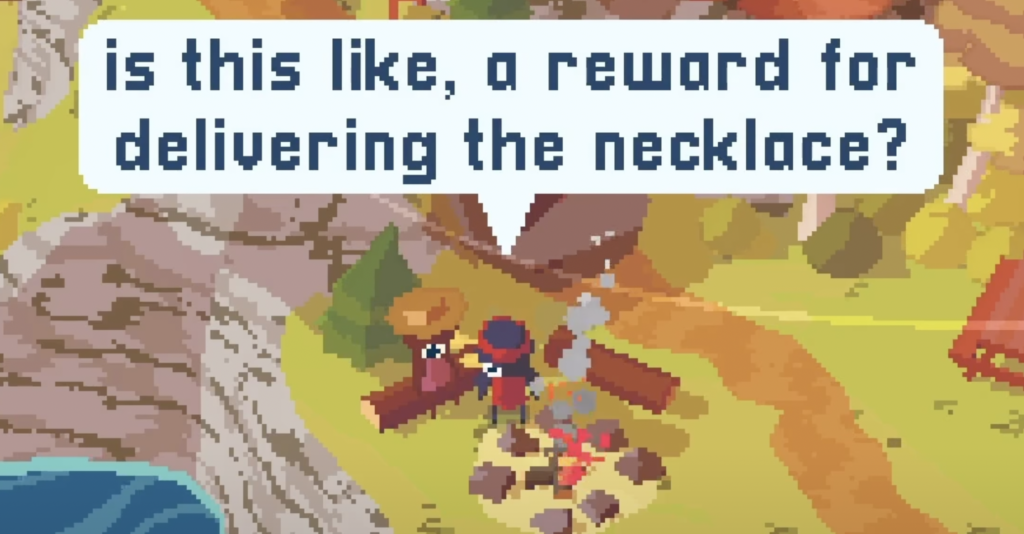
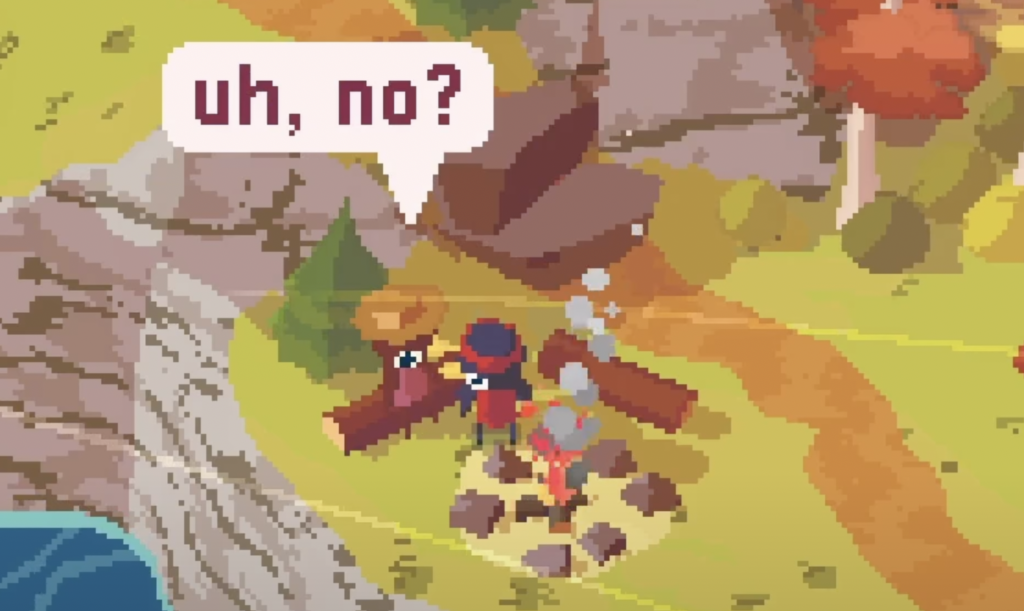
This gamification of friendship and social interaction within these games might cause us to consider the implications of linking rewards and socialization; should we be averse to the idea that games often link friendship with transactions? Or are our real-life social interactions just as intertwined with achievements and rewards?
Bibliography:
“A Short Hike – Full Playthrough,” Ludophiles, YouTube, https://www.youtube.com/watch?v=p6UDqtlmJpk.
“Friendship | Animal Crossing,” Animal Crossing Wiki, https://animalcrossing.fandom.com/wiki/Friendship#:~:text=The%20player’s%20friendship%20level%20can,favors%20they%20request%20lowers%20friendship.
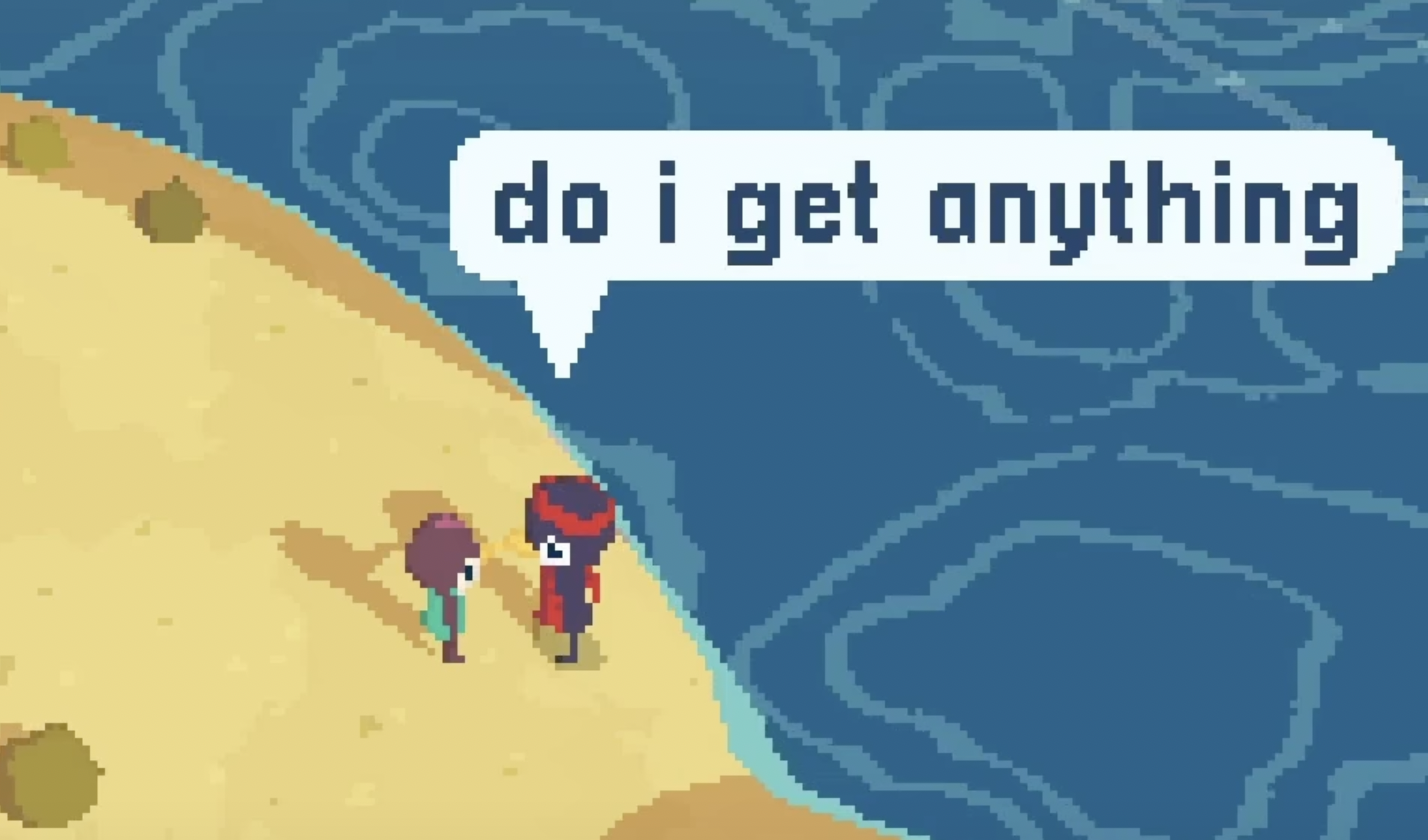

I thought this was a really interesting post! I feel like A Slow Hike’s tendency to make fun of a trope like this might be part of the game’s larger sense of, well, trying to subvert the speed and reflexive nature of typical games in favor of a more pensive, thoughtful kind of gameplay experience. The game seems like it’s all about exploring, taking one’s time, stopping to smell the roses, and just general wholesome living, and so it makes sense that the game would be like, “Uh, of course there’s no reward–sometimes it’s good to just be nice.” And I like that you brought this into the realm of whether or not our real life friendships are also transactional, because I think that–while how transactional a relationship is can depend a lot on circumstance and so on–A Short Hike definitely seems to be telling players to be as non-transactional as possible in their relationships. I think that games certainly can put forward a vision of helping out only in anticipation of a reward and that, just as this game is trying to subvert a lot of other game tropes, A Short Hike is trying to get people to maybe shake off that mindset a bit.
I definitely agree with both you and the post that transactional relationships are the expectation in video games. From a game design perspective, this just makes sense — you reward the player for certain actions. My first instinct in writing this reply was to try and find some sort of counterexample besides A Short Hike of a game which emphasizes non-transactional game relationships, but I drew a blank, at least when it comes to games that emphasize it. I think the best example I could come up with would be a game where talking to characters is its own reward, like in Night in the Woods or EarthBound, where the quality of the dialogue is its own reward in pursing interactions with other characters. I think this mimics real life relationships in a way, where talking to people makes you feel closer to them and enjoy their personalities.
This is a great point that I never thought about. Perhaps a darker lens through which to view the gamification of relationships through gifts and interaction could be the phenomenon of parasocial relationships, particularly those between online personalities and their fanbases. Twitch streamers are online a lot, and often their viewers try to show their affection in the form of being a regular on stream, and then large donations of money or bits meant to catch the streamer’s eye. Gift-giving seems to be a primary love language for people over the internet, as is reflected in videogames a lot of the time. Anyways, this is what makes A Short Hike so great! It pushes back a little bit while still retaining the wholesomeness that we love it for.